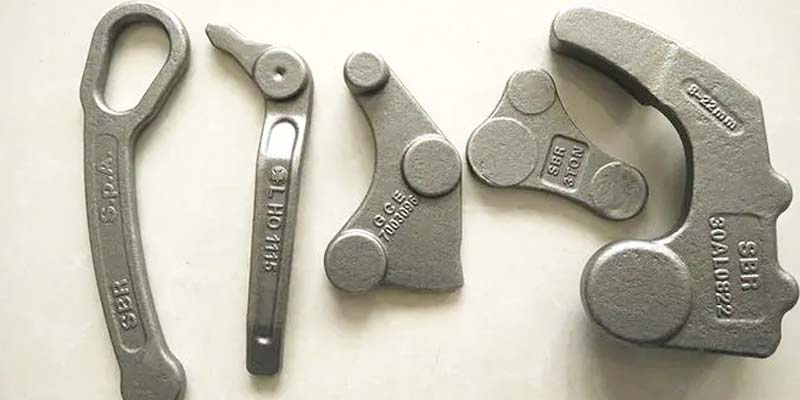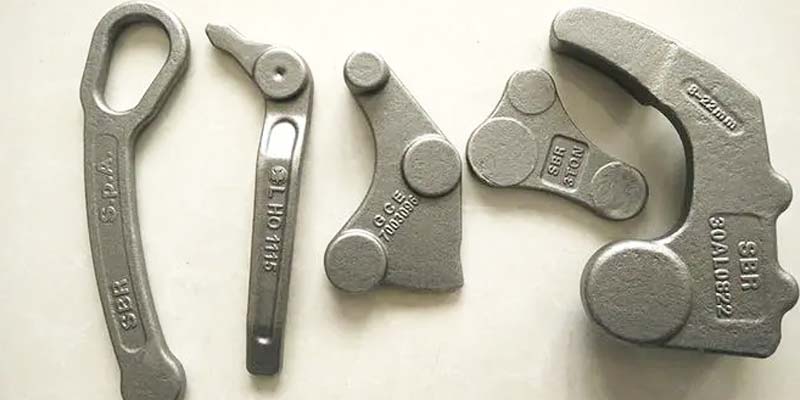- Contact Innally, Let you purchase forgings in China more favorable prices, products more assured!
- Hotline:+(86)15038323776 Email:innally@innally.com
Classification of construction machinery forgings and their application fields in different industries
- Category: Construction machinery forgings, Copper forging
- |
- Date: 14/08/2023
Construction machinery forgings refer to parts with certain shape and mechanical properties obtained through plastic deformation and processing of metal materials, which are widely used in construction machinery and equipment.
- Carbon steel, stainless steel, alloy steel, etc
Product Details
Construction machinery forgings refer to parts with certain shape and mechanical properties obtained through plastic deformation and processing of metal materials, which are widely used in construction machinery and equipment.
First, classification of construction machinery forgings
According to the choice of materials and different uses, construction machinery forgings can be divided into the following categories:
Steel forgings: using a variety of different types of steel as raw materials, through hot forging or cold forging and other processes. Common steel forgings are shafts, gears, dowel, flanges and so on.
Aluminum alloy forging: Using the low melting point and high plasticity of aluminum alloy, through forging processing to make a variety of shapes. Aluminum alloy forgings are widely used in aviation, automobile, ship and other fields.

Copper forgings: mainly made of pure copper or copper alloy, with good electrical conductivity and corrosion resistance, widely used in power, communication and other fields.
Titanium alloy forgings: Titanium alloy has excellent mechanical properties and corrosion resistance, and is often used in aerospace, shipbuilding and chemical industries.
Stainless steel forgings: with good corrosion resistance, heat resistance and mechanical properties, are widely used in food, chemical, pharmaceutical and other industries.
Second, the application of construction machinery forgings in different industries
Construction engineering field: In construction engineering, construction machinery forgings are mainly used for key components of tower cranes, cranes, concrete mixing trucks and other equipment, such as legs, rotary frames, gears, etc. These forgings bear huge pressure and impact force, which puts high requirements on the strength and durability of the material.
Mining engineering field: In mining engineering, construction machinery forgings are widely used in drilling RIGS, excavators, loaders and other equipment rotating parts and transmission parts, such as crankshaft, dowel, gear, chain and so on. These forgings require high wear resistance and tensile strength to withstand complex working conditions and harsh environmental conditions.
Agricultural engineering field: In agricultural machinery, construction machinery forgings are mainly used in tractors, combine harvesters and other agricultural equipment. These forgings need to have good strength and corrosion resistance to cope with high loads and harsh external environments in field operations.
Port engineering field: In port engineering, construction machinery forgings are mainly used as an important part of wharf cranes, stevedors and other equipment. These forgings need to have a high load bearing capacity and seismic performance to ensure the safe and efficient handling of port operations.
Energy engineering: In energy engineering, construction machinery forgings are widely used in power plant steam turbines, boilers and other equipment. These forgings need to have good high temperature resistance and oxidation resistance to ensure the normal operation of energy equipment.
To sum up, the classification of construction machinery forgings and its application in different industries is a subject with extensive research value and important practical significance. Through in-depth understanding of the characteristics and application fields of various forgings, it can provide reference and guidance for the design, manufacture and use of construction machinery and equipment to promote the development and progress of related industries.
nannan
INNALLY mainly provides you with various types of cast and forged parts products. Welcome your inquiries! innally@innally.com
Related Products
Search
Forging center
- Steel forgings
- Aluminium alloy forging
- Titanium alloy forging
- Stainless steel forging
- Copper forging
- Automotive forgings
- Locomotive forging
- Bicycle forgings
- Motorcycle forging
- Rigging and fasteners
- Bearing forging
- Electric power fittings
- Marine forging
- Mechanical forgings for metalworking
- Mining machinery forgings
- Marine engineering forgings
- Construction machinery forgings
Popular product

© 2025. All Rights Reserved.







